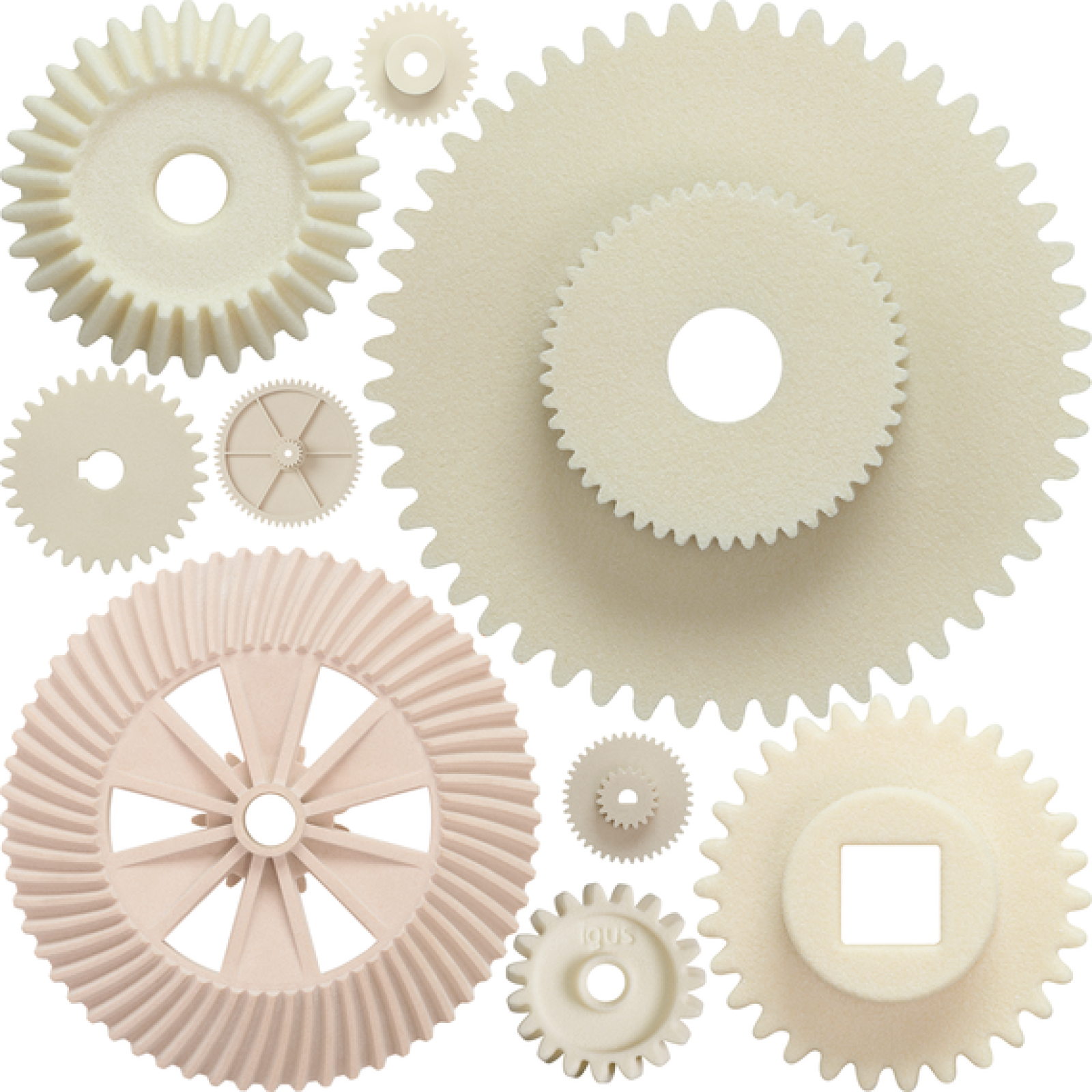
What are Plastic and Composite Gears?
Plastic and composite gears are lightweight, silent and corrosion-resistant gear types produced as an alternative to traditional metal gears. These gears, produced from polymer-based materials, are preferred especially in applications requiring low to medium loads due to their wear resistance and low friction advantages.
Areas of Use:
Automotive: Used in low torque applications such as window lifters, seat mechanisms, air duct guidance systems.
Medical Devices: Preferred in MRI and X-ray machines, biomedical devices due to their silent and non-magnetic structure.
Home Appliances: Used in coffee machines, food processors and vacuum cleaners for their light and silent operation.
Power Tools: Used in the internal mechanisms of devices such as drills and saws.
Aerospace and Defense: Used in systems requiring low weight and special durable composite materials.
Features:
Lightness: It has a much lower density compared to metal, which reduces the total weight of the system.
Low Noise and Friction: It operates quieter than metal gears and requires less lubrication.
Corrosion Resistance: It is resistant to factors such as moisture, chemicals and salt water.
Low Cost: It costs less than metal in mass production.
Electrical Insulation: Since it is not electrically conductive, it is safe in systems requiring electrical insulation.
Materials Used:
Thermoplastics:
Composite Materials:
